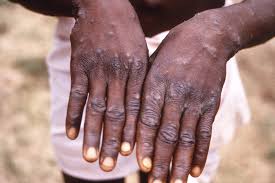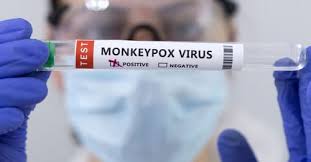Facebook Twitter Instagram Somali Magazine
South Sudan activates emergency response as health officials work to contain the virus and prevent further spread
JUBA – South Sudan has officially confirmed its first case of mpox, a viral zoonotic disease, after a patient tested positive for the virus. Acting Minister of Health, James Hoth Mai, made the announcement on Friday, declaring an outbreak of the disease in the country. The confirmation follows laboratory results from the National Public Health Laboratory (NPHL), which identified the infection in a 31-year-old Ugandan national residing at Kupuri Camp in Luri Payam, Juba.
According to Mai, the patient exhibited symptoms including fever, rash, and body itching on January 22. Subsequent testing confirmed the presence of the virus on February 6. The minister further revealed that the patient had recently traveled to Uganda, a neighboring country that has been grappling with an ongoing mpox outbreak since 2024.

Understanding Mpox and Its Transmission
Mpox, formerly known as monkeypox, is a viral zoonotic disease that primarily spreads from animals, particularly wild rodents, to humans. Human-to-human transmission occurs through direct contact with skin lesions, infected bodily fluids, or indirectly through contaminated materials such as bedding, clothing, or surfaces.
While the disease is not as contagious as some other viral infections, close contact with an infected person increases the risk of transmission. Symptoms of mpox include fever, swollen lymph nodes, rash, and lesions, which often progress through different stages before forming scabs and healing. The virus can spread through respiratory droplets during prolonged face-to-face contact, although this is less common than skin-to-skin transmission.
Government Response and Containment Measures
In response to the confirmed case, the Ministry of Health has activated the Public Health Emergency Operation Center (PHEOC) to coordinate nationwide containment efforts. The confirmed patient has been placed under isolation at Gudele Hospital, where medical professionals are providing necessary treatment and monitoring his condition.
A specialized team of health experts from both national and subnational levels, along with representatives from the World Health Organization (WHO) and other health partners, has been mobilized to conduct a detailed field investigation. Their primary focus includes identifying all individuals who may have come into contact with the infected patient and ensuring that they undergo close monitoring to prevent further spread of the virus.
Health authorities have emphasized the importance of adhering to preventive measures and have urged the public to remain vigilant. Individuals experiencing symptoms such as fever, rash, or body itching are advised to seek immediate medical attention and report to the nearest health facility for evaluation and possible testing.
Call for Vigilance Among Health Workers
The Ministry of Health has issued a directive urging all healthcare professionals, including those working in private clinics, to strictly follow standard operating procedures when handling suspected cases. Medical practitioners have been instructed to report any suspected mpox cases to county health authorities to facilitate prompt investigation and intervention.
“The Ministry of Health calls upon all health workers, especially those in private clinics and healthcare centers, to remain alert and follow the necessary protocols,” Mai stated. “It is critical that any suspected cases are reported immediately to ensure timely intervention and to prevent further transmission of the virus.”

Additionally, the government has called for public cooperation in observing hygiene measures, avoiding close contact with infected individuals, and refraining from handling contaminated materials. Authorities are also intensifying public awareness campaigns to educate communities about the symptoms, transmission, and preventive measures associated with mpox.
Regional Context and Concerns
The confirmation of mpox in South Sudan adds to growing concerns about the disease’s presence in the region. Uganda, which shares a border with South Sudan, has been battling an outbreak since early 2024, raising fears of cross-border transmission. The movement of people between the two countries poses a heightened risk, making swift response measures crucial in containing the spread.
Health officials are also working closely with international partners, including WHO, to strengthen surveillance and response strategies. Efforts include enhancing laboratory testing capacity, deploying rapid response teams, and ensuring that healthcare facilities are equipped to handle potential new cases.
Public Advisory and Next Steps
As South Sudan takes steps to address the outbreak, the Ministry of Health has urged the general public to remain calm but cautious. Officials have reiterated the importance of seeking medical attention if symptoms appear and have assured the public that measures are in place to contain the virus.
In the coming weeks, health authorities will continue to monitor the situation closely, assess the effectiveness of containment efforts, and provide updates as necessary. The government remains committed to safeguarding public health and minimizing the impact of the outbreak through coordinated intervention and public cooperation.
While the situation is being managed, authorities stress the need for continued vigilance, adherence to preventive measures, and prompt reporting of suspected cases to help curb the spread of the disease in South Sudan.
